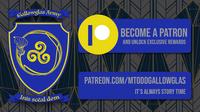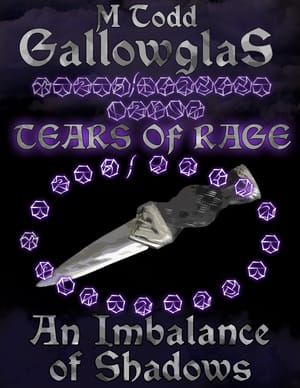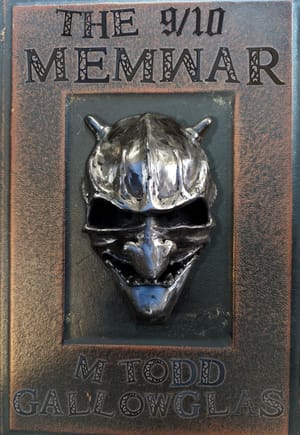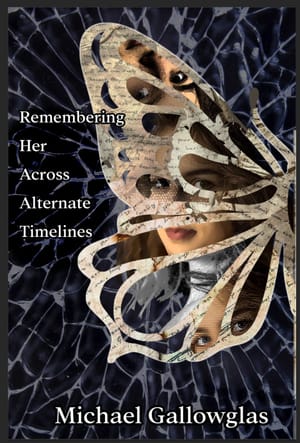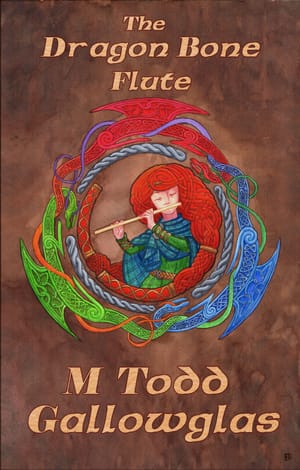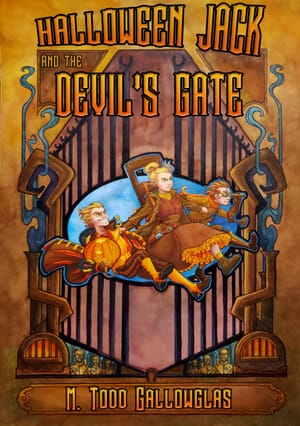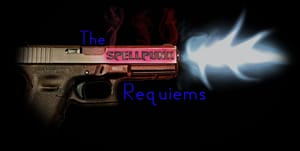The Life and/or Death of Frodo Baggins
It’s Tolkien Reading Day, and so I thought I’d dust off this old paper I wrote years ago for a Literature of Science Fiction and Fantasy class I took a while back. I’m going to “polish” it up a bit so that it’s less academic and reads more like my normal blog style, but the essence and spirit of the piece remain intact. Enjoy!
Oh, and this contains some MASSIVE Lord of the Rings spoilers right off the bat.
I’ll come out and drop the bomb right off: Frodo should have died alongside Gollum in the fires of Mount Doom.
(Waiting to make sure the internet doesn’t explode.)
We still here? Okay… Allow me to explain.
This controversial thought got planted into my head by Steven Erikson, author of the acclaimed, Malazan Book of the Fallen series, when I attended his reading at the World Fantasy Convention in Austin Texas. Steven read some, and then opened it up for questions. I can’t remember exactly how it came up, but the moment he said, “Frodo should have died in Mount Doom,” a stunned silence hung throughout the room, followed quickly by me blurting out, “That’s awesome!” And that’s when my friendship with Mr. Erikson began.
So, now let’s go about justifying this claim.
In a nutshell, Frodo’s survival weakens several characters’ story arcs and contradicts one of the major themes of Tolkien’s epic trilogy: Order is restored by death. Fordo’s survival also ignores the roots of Tolkien’s work and its ties to Catholic and Anglo-Saxon mythic traditions. Tolkien would have served The Lord of the Rings far better if he could have sucked it up given Frodo the tragic ending he deserved rather than trying to find some place in the world for the tragic hero after his fall.
In writing the original paper, I emailed several fantasy writers to get their thoughts on this idea. Few of them responded back. Thankfully, my good friends, Brandon Sanderson, author of Mistborn, The Way of Kings, and the final three volumes of The Wheel of Time, and David B. Coe/D.B. Jackson, author of The Rules of Ascension and The Theiftaker Series didn’t let me down.
Brandon Sanderson wrote:
“Frodo was so tainted at the end that killing him may have been the more sympathetic thing to do. It certainly would have helped the ‘Frodo as Gollum’ theory to have the two of them, together, fall into the fires together.”
To get a different side of that coin, David B. Coe/D.B.Jackson responded:
“Frodo should have died in Mount Doom, eh? I’m happy to comment, but I have to disagree. From a literary standpoint, I think he's a much more powerful character as a scarred survivor of his ordeal with the Ring… And each of the lead Hobbits -- the point of view characters -- weathers his ordeal and comes out stronger for it, both physically and emotionally. All, that is, except Frodo. Frodo lost his finger and bears the scar from Weather Top that will never fully heal. While the others have grown in stature (physically speaking) Frodo withdraws into himself and seems diminished in a way. Wiser, perhaps, but diminished nevertheless. To me, this is what makes his story so compelling and, in the end, so real.It sets him apart from the others, just as having the Ring set him apart He wasn’t the strongest -- Bilbo gave up the Ring at a lesser cost to himself, and so did Sam at the end. Frodo was flawed, and he suffered for his shortcomings. Kill him on Mount Doom, and that powerful message is lost.”
Many people I’ve asked about this like to suggest that Frodo died a symbolic death, as my friend A.E.Marling, author of Brood of Bones suggests:
“In a sense, he did die. By carrying the Ring for so long, he became not of this world, almost ghostly. For that reason he had to leave with Gandolf at the Grey Havens.”
Unfortunately, I don’t buy the “symbolic death” or “stronger character for surviving” arguments. Throughout “The Lord of the Rings,” order in Middle Earth is restored through either death. Real death. Not wussy little “symbolic” death.
Gandalf the Gray dies in his battle against the Balrog only to be born again, but not as he was
“‘Yes, I am white now,’ said Gandalf. ‘Indeed I am Saruman, one might almost say, Saruman as he should have been…”
Denethor, Steward of Gondor, dies to make way for Aragorn. At first, Boromir’s death seems to sew chaos into the Fellowship; however, his death makes it possible for Frodo and Sam to part from the Fellowship and to create a place for Faramir to stand as the stronger brother. At the end of Return of the King, Arwen, daughter of Elrond, chooses to become mortal and wed Aragorn, and though through this choice she will eventually die, this choice preserves order in Gondor as she will preserve Aragorn’s line by providing heirs and allowing the Age of Man to continue.
I don’t even really see that Frodo suffers a symbolic death. Yeah, the One Ring’s corruption weakens his body and spirit, and he’s going to suffer for the rest of his life from a wound that will never heal. Whatever. Frodo is getting off light, and I think it’s because Tolkien couldn’t step up and do what needed doing. Really. Frodo is the only character in the history of Middle Earth to become corrupted by the One Ring and not die. Isildur, Boromir, Saruman, Gollum, and even Sauron all perish in the end because of their obsession for the One Ring.
Sure, some are tempted by the Ring’s power, yet refuse it. And that’s kind of the point. If the Ring could just corrupt anyone at all, then the whole thing is pointless. Early in The Fellowship of the Ring, Frodo attempts to give the Ring to Gandalf, who says,
“‘No!… With that power I should have power too great and terrible. And over me the Ring would gain a power still greater and more deadly…Do not tempt me!…I dare not take it, not even to keep it safe, unused. The wish to wield it would be too great, for my strength. I shall have such need of it. Great perils lie before me.’”
Gandalf knows to take the ring would lead to his own destruction. However, in the Hobbits, the wizard sees the opportunity destroy the Ring. However, Frodo holds the Ring too long, and when the moment finally comes to destroy it in the fires of Mount Doom, Frodo cannot; the Ring has corrupted him too completely.
“Then Frodo stirred and spoke with a clear voice, indeed with a voice clearer and more powerful than Sam had ever heard him use, and it rose above the throb and turmoil of Mount Doom, ringing in the roof and walls.
“‘I have come,’ he said. ‘But I do not choose now to do what I came to do. I will not do this deed. The Ring is mine!’ And suddenly, as he set it on his finger, he vanished from Sam's sight.”
It is only because of Gollum that the One Ring was destroyed at last. Frodo even acknowledges this,
“‘But do you remember Gandalf's words: Even Gollum may have something yet to do? But for him, Sam, I could not have destroyed the Ring. The Quest would have been in vain, even at the bitter end.” (Tolkien, 229)
Frodo escapes death on Mount Doom because of Sam.
Sam, is the true hero of The Lord of the Rings. He grows the most. Frodo only arrives at Mount Doom because of Sam’s strength. Sam is the one above all others that remains uncorrupted by carrying the ring. Unfortunately, Frodo’s survival overshadows Sam’s heroism, as well as Merry and Pippin, when they return to the Shire at the end of the Trilogy.
I feel that Peter Jackson did the world a great disservice by giving us several extra hours of battle scenes at Helms Deep and Minis Tirith, yet decided to cut out the Scouring of the Shire.
To sum up for those of you who only saw the movie, the Scouring of the Shire takes place after the Hobbits return to the Shire. I the books, Wormtongue doesn’t’ kill Saruman, rather, they flee to the Shire and take it over. When the Hobbits return home, they must save the shire and cast the new tyrants out. They are only capable of this because of what they have experienced in their adventures outside of the shire. In this chapter, Sam, Merry, and Pippin are the active characters. Frodo does little except speak only as a voice of “wisdom.” By having Frodo survive, Tolkien diminishes the growth of character in the Hobbits over the course of the trilogy. Sam, Merry, and Pippin have each learned as much or more about themselves and the greater world outside the Shire, that Frodo presence here robs them of their own heroic journeys. In some ways, the other three Hobbits could be seen as vengeful bullies,only to be held back by Frodo’s “voice of reason.” We don’t see even a hint of these qualities in Sam, Merry, and Pippin anywhere else in the trilogy. It’s as if Tolkien is so desperate to have Frodo relevant in this chapter that he degrades Sam, Merry, and Pippin just so that Frodo has some purpose here. All in all, I really think this cheapens what is the true climactic moments of the trilogy.
So…That’s what’s in the text. Now, let’s look at the mythic and religious traditions Tolkien claims to follow. Frodo’s survival shows that Tolkien turned away from those traditions.
It’s not really a secret that J.R R. Tolkien considered his epic masterpiece The Lord of the Rings a fundamentally religious and Catholic work. Really, the whole trilogy screams it. Well, okay, maybe it’s The Chronicles of Narnia is really the series that does the religious, Look at me, I’m a Christian allegory,” but The Lord of the Rings comes in a close 2nd. We see this pretty blatantly in two of the three Christ figures in The Lord of the Rings: Aragorn and Gandalf. Both suffer a death of some kind and return stronger (in Aragorn’s case, it’s a symbolic death…but I still don’t buy a symbolic death with Frodo.) When both Gandalf and Aragorn are “reborn,” they return to make their companions and followers stronger. Frodo does not suffer a death (no, not even a symbolic one) and rebirth, and even if he did, he doesn’t grow stronger; he only grows weaker. Also, as I mentioned, his continued presence in the series doesn’t bring the other characters up, only serves to diminish them.
In some ways, Frodo has the most blatant tie to Christ, in that in one of his moments of greatest weakness, he has a Simon (in the form of Sam) who not only helps to carry Frodo’s burden, but also carries Frodo himself. As Sanderson pointed out, Tolkien was also a scholar of Beowulf and other Anglo-Saxon myths. In the traditions of these stories, Beowulf dies in the final battle against the Dragon. Even Shakespeare understood that tragic a flaw requires the hero to ultimately perish, hence the doomed struggles of Othello, Macbeth, Hamlet and others. Yet, in the end, Hamlet ultimately succeeds in his quest. Frodo shows his flaw beneath Mount Doom. He becomes corrupted and cannot give up the ring. Once this happens, Frodo transforms from a romantic hero to a tragic hero. Unfortunately, for whatever reasons, Tolkien did not have the courage to carry out the mythic and religious traditions he had used in crafting the rest of his story, and cheapens every other death, sacrifice, and heroic journey that takes place in The Lord of the Rings.
So, there it is. My thoughts on why Frodo should have died as placed in my brain by Steven Erikson. What do you think? Does the idea have merit? Or, am I committing fantastic literature sacrilege and you think I should be cast into the fires of Mount Doom for even suggesting such a proposition?

